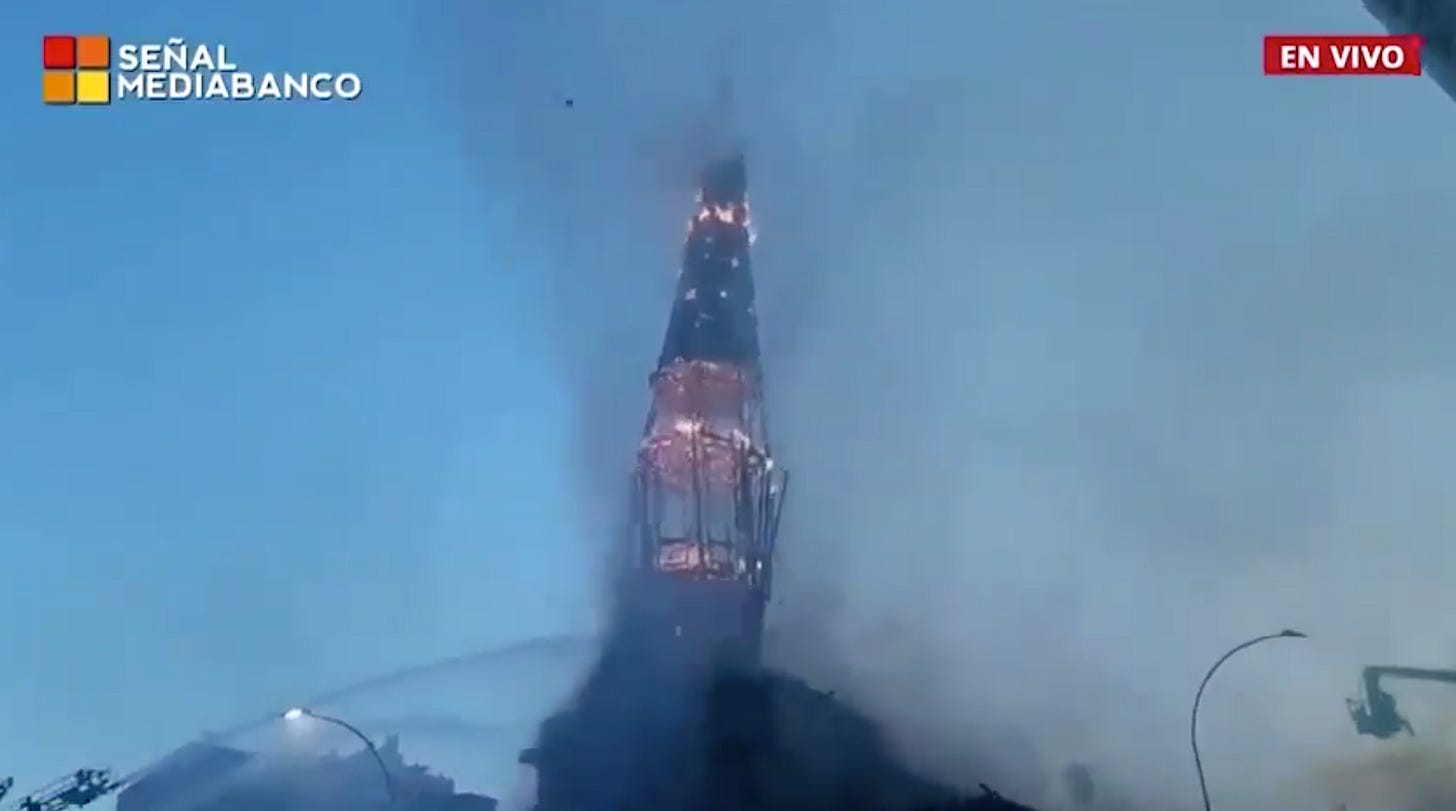The October 2020 protest wave
Still fighting a pandemic and recovering from recession, governments lack the funds to meet protester demands.

Above: Screenshot of video of church spire collapsing in Chile taken from John Bartlett’s Twitter feed.
Here are some of the protests that have occurred the region during the last ten days:
In Mexico, protesters blocked the doors to the Senate as Morena voted to cut various funds.
Two churches were burnt during Chile’s protests on Sunday.
Protesters held a long-planned national strike in Colombia on Wednesday, 21 October, that included a protest by indigenous groups.
Costa Rica faced continued protests on Monday, even as the Congress passed an economic package that would cut annuities for public workers.
Protesters in Santa Cruz, Cochabamba and Sucre contested the Bolivian election results.
Ecuador has protests planned for today, 22 October, related to economic issues and the one year anniversary of the 2019 protests.
Venezuela continues to see a surge of protests, particularly outside of the capital, due to a lack of food and fuel. An op-ed in the Washington Post described over 1,000 protests occurring in September and October appears on track for a similar number.
Argentina faced large protests on 12 October and more are likely as the currency crashes and gas and electricity prices rise on consumers.
About five weeks ago I wrote a post about the region entering a new round of protests that included following:
...the pandemic and the associated recession have magnified many of the original challenges [that caused the 2019 protest movement]. Poverty and inequality have worsened. Access to education and healthcare is more limited. Corruption opportunities have grown and oversight has been restricted. Governments that are spending to combat the recession, while absolutely necessary during this emergency, may limit their fiscal space to deal with other issues in the coming years. All of those issues create a base level of anger that can drive protests if the right spark occurs.
One thing I underestimated in that post was how important the economic questions would be to the rising protests in the short term. Many (but not all) of the protests I listed above are closely tied to controversies about government tax increases, spending cuts, or a failure of governments to deliver services and fund initiatives. Even where the protests were not immediately about economic questions, such as Bolivia, the economic questions loom in the background as one of the big issues the government faces and something that can further divide the government from protesters.
That’s bad news because governments don’t have much fiscal space to work right now. As Reuters published this week:
Latin America’s tentative economic recovery from the coronavirus-related recession faces increasing doubts over gigantic budget gaps and dwindling investor confidence, a Reuters poll showed on Tuesday.
Brazil has avoided social unrest and Bolsonaro has gotten a bump in the polls because the government has engaged in a spending spree that does not appear sustainable. Many other governments are watching their approval ratings fall and protests rise with very little room to spend their way out of the problem.
As I wrote in September, it’s possible to find correlating factors causing unrest across the region, even if the details are different in every country. Right now, my regional take is:
Latin America is in an anti-incumbent moment and
The chances of protests are increasing in part because
Governments are running out of money.
However, I do not see a regional shift towards or away from the left, right, center, populism, authoritarianism or technocratic rule. Voters and citizens are angry at whomever is in charge and are looking for alternatives.
At the beginning of this post I was able to list protests in eight countries from the last ten days. I expect to be able to write a similar list in November.
Thanks for reading
If you want to be added to the newsletter distribution list, please enter your email at https://boz.substack.com/ or email me at boz@substack.com and I will add you.


